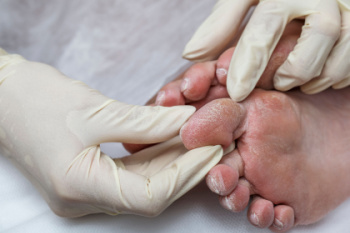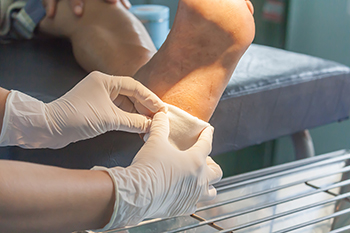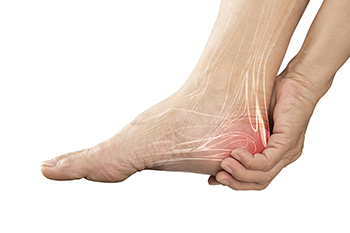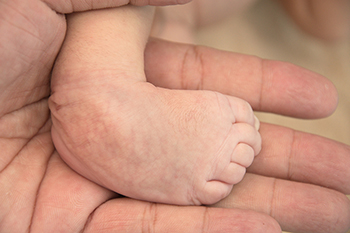Items filtered by date: October 2024
Are You Suffering From Ingrown Toenails?
Importance of Foot Care in Diabetic Patients

Diabetic foot care is essential for managing the long-term health of diabetics patients. Over time, high blood sugar levels can lead to nerve damage, known as diabetic neuropathy, which often affects the feet. This causes a loss of sensation, making it difficult to notice injuries like cuts or blisters. Unnoticed injuries can quickly develop into serious infections if not treated. People with diabetes are also at a higher risk for developing foot ulcers, which may lead to more serious complications such as gangrene or in severe cases, limb loss. Regular foot inspections, maintaining good hygiene, and choosing appropriate footwear can help reduce these risks. A podiatrist plays a key role in this process by providing medical care, addressing wounds before they worsen, and offering guidance on how to prevent foot issues. If you have foot problems related to diabetes, it is suggested that you schedule an appointment with a podiatrist for an exam and appropriate treatment.
Diabetic foot care is important in preventing foot ailments such as ulcers. If you are suffering from diabetes or have any other concerns about your feet, contact Dr. Michael A. Wood from Foot Health Institute. Our doctor can provide the care you need to keep you pain-free and on your feet.
Diabetic Foot Care
Diabetes affects millions of people every year. The condition can damage blood vessels in many parts of the body, especially the feet. Because of this, taking care of your feet is essential if you have diabetes, and having a podiatrist help monitor your foot health is highly recommended.
The Importance of Caring for Your Feet
- Routinely inspect your feet for bruises or sores.
- Wear socks that fit your feet comfortably.
- Wear comfortable shoes that provide adequate support.
Patients with diabetes should have their doctor monitor their blood levels, as blood sugar levels play such a huge role in diabetic care. Monitoring these levels on a regular basis is highly advised.
It is always best to inform your healthcare professional of any concerns you may have regarding your feet, especially for diabetic patients. Early treatment and routine foot examinations are keys to maintaining proper health, especially because severe complications can arise if proper treatment is not applied.
If you have any questions please feel free to contact one of our offices located in Lansing, and Chicago, IL . We offer the newest diagnostic and treatment technologies for all your foot and ankle needs.
Types of Open Wounds on the Feet

Open wounds on the feet can vary in severity and type, each requiring specific care. Abrasions are superficial injuries resulting from friction, They often cause the outer layer of skin to rub off, leading to redness and mild bleeding. Lacerations are deeper cuts that can vary in length and depth, often caused by sharp objects,. They may require stitches for proper healing. Avulsions occur when a portion of the skin is torn away, potentially exposing deeper layers and necessitating immediate medical attention. Puncture wounds result from objects piercing the skin, such as nails or splinters, which can introduce bacteria and lead to infection if not treated properly. Understanding these types of wounds is vital for effective first aid and healing. If you have a foot wound, it is suggested that you consult a podiatrist who can determine what type it is and offer effective treatment methods.
Wound care is an important part in dealing with diabetes. If you have diabetes and a foot wound or would like more information about wound care for diabetics, consult with Dr. Michael A. Wood from Foot Health Institute. Our doctor will assess your condition and provide you with quality foot and ankle treatment.
What Is Wound Care?
Wound care is the practice of taking proper care of a wound. This can range from the smallest to the largest of wounds. While everyone can benefit from proper wound care, it is much more important for diabetics. Diabetics often suffer from poor blood circulation which causes wounds to heal much slower than they would in a non-diabetic.
What Is the Importance of Wound Care?
While it may not seem apparent with small ulcers on the foot, for diabetics, any size ulcer can become infected. Diabetics often also suffer from neuropathy, or nerve loss. This means they might not even feel when they have an ulcer on their foot. If the wound becomes severely infected, amputation may be necessary. Therefore, it is of the upmost importance to properly care for any and all foot wounds.
How to Care for Wounds
The best way to care for foot wounds is to prevent them. For diabetics, this means daily inspections of the feet for any signs of abnormalities or ulcers. It is also recommended to see a podiatrist several times a year for a foot inspection. If you do have an ulcer, run the wound under water to clear dirt from the wound; then apply antibiotic ointment to the wound and cover with a bandage. Bandages should be changed daily and keeping pressure off the wound is smart. It is advised to see a podiatrist, who can keep an eye on it.
If you have any questions, please feel free to contact one of our offices located in Lansing, and Chicago, IL . We offer the newest diagnostic and treatment technologies for all your foot care needs.
Causes and Treatment of a Bruised Heel

A bruised heel occurs when the protective fat pad beneath the heel bone is damaged from repetitive impact or a sudden injury. This condition is common in athletes who engage in high-impact activities, like running or jumping. It also affects people who wear shoes that lack adequate cushioning. People who are overweight or frequently walk on hard surfaces barefoot are at further risk. Symptoms of heel bruising include pain at the bottom of the heel, which may feel sharp if the bone is also bruised. Sometimes the heel appears red or blue, as the result of bleeding under the skin. Treatment focuses on reducing weight-bearing activities, resting, and protecting the heel with supportive footwear. A podiatrist can recommend customized orthotics, and suggest other modifications to reduce strain on the heel. If left untreated, complications like scar tissue may develop, leading to chronic heel pain. If you have a bruised heel, it is suggested that you schedule an appointment with a podiatrist.
Many people suffer from bouts of heel pain. For more information, contact Dr. Michael A. Wood of Foot Health Institute. Our doctor can provide the care you need to keep you pain-free and on your feet.
Causes of Heel Pain
Heel pain is often associated with plantar fasciitis. The plantar fascia is a band of tissues that extends along the bottom of the foot. A rip or tear in this ligament can cause inflammation of the tissue.
Achilles tendonitis is another cause of heel pain. Inflammation of the Achilles tendon will cause pain from fractures and muscle tearing. Lack of flexibility is also another symptom.
Heel spurs are another cause of pain. When the tissues of the plantar fascia undergo a great deal of stress, it can lead to ligament separation from the heel bone, causing heel spurs.
Why Might Heel Pain Occur?
- Wearing ill-fitting shoes
- Wearing non-supportive shoes
- Weight change
- Excessive running
Treatments
Heel pain should be treated as soon as possible for immediate results. Keeping your feet in a stress-free environment will help. If you suffer from Achilles tendonitis or plantar fasciitis, applying ice will reduce the swelling. Stretching before an exercise like running will help the muscles. Using all these tips will help make heel pain a condition of the past.
If you have any questions please contact one of our offices located in Lansing, and Chicago, IL . We offer the newest diagnostic and treatment technologies for all your foot and ankle needs.
A Brief Overview of Congenital Foot Deformities

Congenital foot deformities encompass a range of conditions that affect the structure and function of the feet from birth. Metatarsus adductus is characterized by an inward curve of the front of the foot, while clubfoot appears as a twisted position that may require intervention. Polydactyly involves the presence of extra toes, adding complexity to foot development. Another condition, congenital vertical talus, results in a rigid flat foot that can impact mobility if not treated early. Congenital curly toes refer to toes that curl under, which may cause discomfort or difficulties in walking. While these deformities can vary in severity, early diagnosis and appropriate treatment are essential for promoting healthy foot function and mobility. If your child suffers from a congenital foot deformity, it is suggested that you see a podiatrist who can prescribe the correct treatment and provide essential management tips.
Congenital foot problems require immediate attention to avoid future complications. If you have any concerns, contact Dr. Michael A. Wood of Foot Health Institute. Our doctor can provide the care you need to keep you pain-free and on your feet.
Congenital foot problems are deformities affecting the feet, toes, and/or ankles that children are born with. Some of these conditions have a genetic cause while others just happen. Some specific foot ailments that children may be born with include clubfeet, polydactyly/macrodactyly, and cleft foot. There are several other foot anomalies that can occur congenitally. What all of these conditions have in common is that a child may experience difficulty walking or performing everyday activities, as well as trouble finding footwear that fits their foot deformity. Some of these conditions are more serious than others. Consulting with a podiatrist as early as possible will help in properly diagnosing a child’s foot condition while getting the necessary treatment underway.
What are Causes of Congenital Foot Problem?
A congenital foot problem is one that happens to a child at birth. These conditions can be caused by a genetic predisposition, developmental or positional abnormalities during gestation, or with no known cause.
What are Symptoms of Congenital Foot Problems?
Symptoms vary by the congenital condition. Symptoms may consist of the following:
- Clubfoot, where tendons are shortened, bones are shaped differently, and the Achilles tendon is tight, causing the foot to point in and down. It is also possible for the soles of the feet to face each other.
- Polydactyly, which usually consists of a nubbin or small lump of tissue without a bone, a toe that is partially formed but has no joints, or an extra toe.
- Vertical talus, where the talus bone forms in the wrong position causing other bones in the foot to line up improperly, the front of the foot to point up, and the bottom of the foot to stiffen, with no arch, and to curve out.
- Tarsal coalition, when there is an abnormal connection of two or more bones in the foot leading to severe, rigid flatfoot.
- Cleft foot, where there are missing toes, a V-shaped cleft, and other anatomical differences.
- Macrodactyly, when the toes are abnormally large due to overgrowth of the underlying bone or soft tissue.
Treatment and Prevention
While there is nothing one can do to prevent congenital foot problems, raising awareness and receiving neonatal screenings are important. Early detection by taking your child to a podiatrist leads to the best outcome possible.
If you have any questions please feel free to contact one of our offices located in Lansing, and Chicago, IL . We offer the newest diagnostic tools and technology to treat your foot and ankle needs.
Causes of Pinched Nerves in the Feet

A pinched nerve in the foot occurs when surrounding tissues, such as bones, muscles, or tendons, apply too much pressure on a nerve. This can lead to symptoms like sharp pain, numbness, tingling, or even muscle weakness. Common causes of pinched nerves in the foot include injury, repetitive motions, or structural issues like bone spurs or ganglion cysts. Certain conditions, like tarsal tunnel syndrome or high arches, can compress the nerves in the foot. Wearing improper footwear like tight or high-heeled shoes and carrying extra weight can also contribute to nerve compression in the feet. A podiatrist can determine the cause of your foot pain and recommend treatment, which can include footwear modifications or custom orthotics. If you have unexplained sharp foot pain, it is suggested that you schedule an appointment with a podiatrist to find out if you have a pinched nerve.
Foot Pain
Foot pain can be extremely painful and debilitating. If you have a foot pain, consult with Dr. Michael A. Wood from Foot Health Institute. Our doctor will assess your condition and provide you with quality foot and ankle treatment.
Causes
Foot pain is a very broad condition that could be caused by one or more ailments. The most common include:
- Bunions
- Hammertoes
- Plantar Fasciitis
- Bone Spurs
- Corns
- Tarsal Tunnel Syndrome
- Ingrown Toenails
- Arthritis (such as Gout, Rheumatoid, and Osteoarthritis)
- Flat Feet
- Injury (from stress fractures, broken toe, foot, ankle, Achilles tendon ruptures, and sprains)
- And more
Diagnosis
To figure out the cause of foot pain, podiatrists utilize several different methods. This can range from simple visual inspections and sensation tests to X-rays and MRI scans. Prior medical history, family medical history, and any recent physical traumatic events will all be taken into consideration for a proper diagnosis.
Treatment
Treatment depends upon the cause of the foot pain. Whether it is resting, staying off the foot, or having surgery; podiatrists have a number of treatment options available for foot pain.
If you have any questions, please feel free to contact one of our offices located in Lansing, and Chicago, IL . We offer the newest diagnostic and treatment technologies for all your foot care needs.

